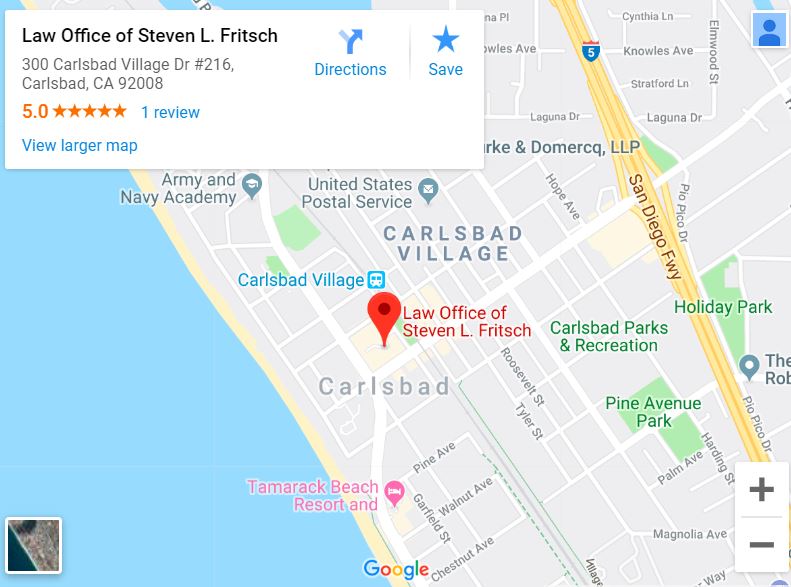 In the United States, each state has the right and responsibility to define its own laws surrounding marriage, including separation, divorce, and annulment. This means that the right to define unique and specific ground in which a divorce may be granted by a court of law also falls to each individual state. When seeking a divorce, you need to know what your state allows as viable grounds for a divorce to be granted. California Family Code clearly outlines all California laws governing marriage as well as the dissolution of marriage, separation, and annulment.
In the United States, each state has the right and responsibility to define its own laws surrounding marriage, including separation, divorce, and annulment. This means that the right to define unique and specific ground in which a divorce may be granted by a court of law also falls to each individual state. When seeking a divorce, you need to know what your state allows as viable grounds for a divorce to be granted. California Family Code clearly outlines all California laws governing marriage as well as the dissolution of marriage, separation, and annulment.
California is a no fault divorce state, meaning that if you file for divorce you cannot cite any wrongdoing perpetrated by your spouse as a reason for the divorce. In most instances, the grounds for divorce in California are irreconcilable differences. It is reasoned that these irreconcilable differences are what has led to the complete and irreparable breakdown of the marriage. California divorce law also allows for a marriage to be dissolved if one of the parties has a “permanent legal incapacity to make decisions.”
Ground for Ending a Marriage in California
Married couples can end their marriages in one of three ways:
Each of these grounds for divorce has its own set of requirements and has specific results. Also in each case, it must be filed in the courts and a judgment rendered in order for the dissolution to be valid. If there are children resulting from the marriage, whether biological or adopted, or if there is marital property to be divided, there may be separate proceeding to address those matters. It is important to understand that there must be grounds for divorce declared for every divorce that is filed in the state of California.
Irreconcilable Differences
The term “irreconcilable differences” is used as grounds for a dissolution of marriage in a no fault divorce or in no fault states. Under these grounds, no fault is placed on either party within the marriage. One or both parties cite irreconcilable differences as the reason they wish to divorce – usually without defining what those differences are – and the court determines that they are substantial reasons for ending the marriage and which make it evident that there should be a dissolution of marriage.
Permanent Legal Incapacity
Permanent legal incapacity may also be used as grounds for divorce, although it requires substantiated proof that such a condition exists. This proof is usually presented by competent, professional psychiatric or medical testimony. The spouse must have been legally incapacitated at the time the divorce petition was filed and remains as such so that they are forever lacking the legal capacity to make decisions.
If a divorce is granted on these grounds, it does not relieve the other spouse from any legal obligation to provide support to the spouse who lacks the permanent legal incapacity to make decisions. They may still be ordered by the court to pay support to that spouse or fulfill other legal obligations as circumstances require and the court sees as legally necessary.
Grounds for Annulment
If a marriage is determined to be legally invalid, one or both parties to the marriage may seek an annulment. Grounds for an annulment in California include:
- When either party is already married or in a domestic partnership
- When the parties are close blood relatives
- When the marriage was the result of fraud
- When either party entered into the marriage while of “unsound mind”
- When the party filing was under 18 at the time of the marriage
If an annulment is deemed valid by the court and granted, it is as if the marriage never occurred. If children resulted from the marriage the court may require a paternity test in order to grant child support and visitation. Property division and spousal support are not handled in an annulment because there are no viable community property laws in the state that govern the under such conditions.
Residency Requirements
In order to file for a divorce in California, one or both of the parties to the divorce must fulfill the California residency requirement for divorce. This means that at least one of the parties to the divorce must have lived, prior to filing:
- In the state of California for at least six months, and
- In the county where the divorce will be filed for at least three months
The only exception is in same sex marriages. They are not held to the same restrictions or requirements. Divorce for a same sex marriage may be filed in California even if neither of the parties to the divorce is a California resident when the divorce is filed or during the proceedings if the following applies:
- The marriage was entered in California, and
- Neither spouse lives in a state that recognized same sex marriage and, therefore, will not dissolve it.
Under these circumstances the spouse seeking divorce in a same sex marriage would file in the superior court of the county where the marriage was entered.
If you are seeking a divorce in California, you probably have a lot of questions. A good divorce lawyer can help you navigate the California divorce laws regarding getting a divorce, child custody and support, spousal support, and property division. Contact the Law Office of Steven L. Fritsch for a free consultation or to begin your divorce proceedings. Divorce is often painful, but we will do all we can to make it as easy on you as possible.
